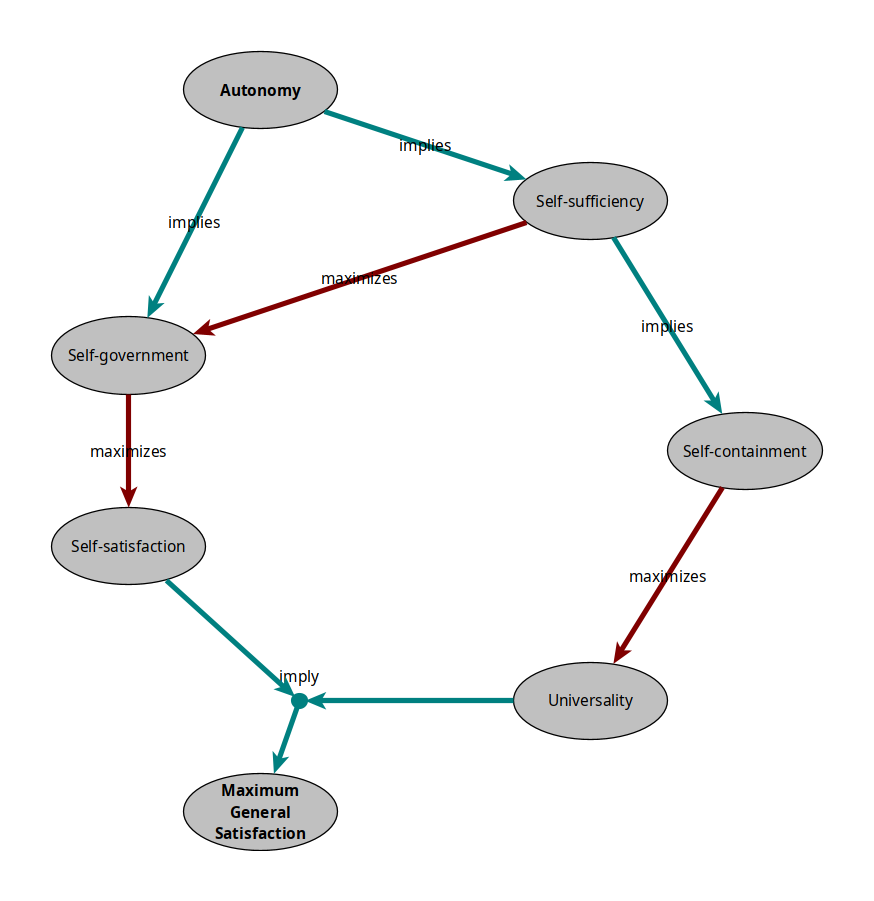
Explaination
Foundation of ethics
"Good" and "bad" are not physical properties, but parameters created by consciousness; as such, they are inherently subjective, and there is no such thing as an "objective" good disjointed from a conscious will producing it.
It follows that the individual will is the only thing that can stand as a valid foundation for ethics; each individual will "points" to a specific aim towards which existence should move, and the combined result of all these countless subjective aims determines the ultimate end of existence (in nearly the same way the countless different forces applied to a body ultimately result in a single one determining its overall movement); so, while it is not possible to determine an "objective" good, it is certainly possible to determine a "general" one.
To sum up, the ultimate end of ethics is the achievement of the highest possible level of fulfillment of every will in the world (aka: the highest general happiness).
It follows that the best possible social system is the one that manages to achieve the maximum possible degree of satisfaction of everyone's needs.
Implications of autonomy

Autonomy is defined as the degree of being able to determine each aspect one's own existence entirely by oneself. This implies:
1) the subject's ability to take and implement decision that regard it entirely by itself without interference from external agents (self-government);
2) the availability all possible material requirements to the subject without the need for intervention from external sources (self-sufficiency).
Self-government can only be truly effective when the subject has direct access to all the means required to implement his decisions, and such condition is a direct implication of self-sufficiency; therefore self-sufficiency maximizes self-government.
Since people naturally know their own wills better than the wills of others, and also tend to prioritize the former over the latter, the achievement of the maximum possible level of self-government also guarantees the achievement of the maximum possible level of personal fulfillment (self-satisfaction).
On the other hand, the achievement of a perfect self-sufficiency implies that the satisfaction of the subject's need will never interfere nor impact on the satisfaction of the needs of others (self-containment); this in turn implies that one instance of the system could be theoretically replicated for every other subject in the world (universality) without risk for interference or conflicts between the various instances.
The universality of self-satisfaction obtained in this way is synonim with the ultimate goal of ethics as described above.
In conclusion, the concept of autonomy is by itself both a necessary and sufficient condition to the achievement of the best conceivable social system.
Return